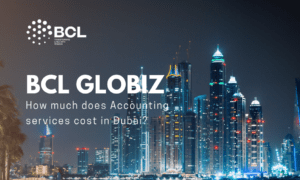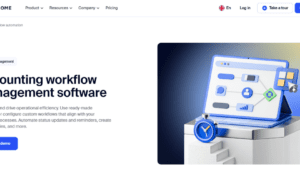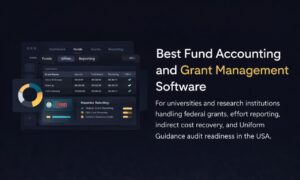Cloud accounting has been around for 10-15 years now, delivering accessible and scalable financial SaaS products, ideal for businesses that need to access real-time data anytime and anywhere. But while cloud accounting has already seen widespread adoption, it’s not without its attendant risks, and these still deter many businesses from taking advantage of the benefits that cloud accounting can bring. So, what are the actual risks associated with cloud accounting, how can companies mitigate against them, and how is innovation advancing the technology?
What is cloud accounting?
Cloud accounting is accounting software hosted on remote servers and made accessible through the internet. Its role is to enable businesses and financial professionals to access accounting operations and financial data from anywhere, on any device with an internet connection. Devised to be user-friendly with intuitive interfaces and real-time support, businesses of all sizes can use cloud accounting, but it has its limitations. The most concerning of which is data insecurity.
With high-profile cloud accounting data breaches hitting the headlines over the years, including TalkTalk and British Airways, businesses have become wary of reliance on cloud accounting services. But the technology has evolved and so has governance, with the Financial Conduct Authority (FCA) enforcing stricter data security policies and demanding due diligence on cloud providers to ensure compliance with the Government’s ‘data protection principles’. So, as long as businesses know how to use the software safely, security isn’t as much of a concern as perhaps it’s made out to be.
The reality of cloud safety
While the high-profile data breaches can’t fail to attract attention, little focus has been given to the tightened regulations of the FCA. Or the fact that all reputable digital providers are investing heavily in cybersecurity because, without it, their businesses simply would not be viable. With encryption, multi-factor authentication, and regular security audits now the norm for 99% of providers and AI being used to rapidly identify system and behavioural abnormalities to detect malicious activity, cloud-based services, including cloud accounting, are working hard to not only ensure compliance but to safeguard customer and data security.
That’s not to say there aren’t risks – there are several, and they are serious and take a range of forms, but they can be mitigated against.
The risks of cloud accounting today and how they are being diminished with innovation
There are five main threats associated with cloud accounting.
- Data breaches: The unauthorised access of sensitive data, which can be exploited.
- Financial losses: When a breach has occurred, it can lead to the individuals affected becoming victims of unauthorised financial transactions or fraudulent invoicing.
- Identity theft: Cloud accounting systems can hold an enormous amount of sensitive data, enabling personal or corporate identities to be stolen.
- Operational disruption: Cyber breaches hold the potential to disrupt the availability and reliability of accounting systems, which can impact businesses in other ways.
- Insider threats: Although this isn’t exclusively a problem of cloud accounting, it’s worth remembering that inside actors may intentionally or accidentally misuse data access, leading to significant leaks.
These are all serious concerns, but cloud providers have worked hard to mitigate them with the creation of innovative and robust systems and advanced security protocols. End-to-end encryption, which makes data unreadable to unauthorised parties, is bolstered by multi-factor authentication and a strong security framework, which incorporates regular audits to identify and address potential vulnerabilities. The only thing providers can’t protect against is the action of users.
How users impact cloud security
Whether malicious or inadvertent, there’s no getting away from the fact that users impact the security of all digital systems. Effective password management has to be a priority, with the use of strong, unique, and regularly changed passwords the ideal scenario – preferably backed up with multi-factor authentication. Employees should also be trained and periodically refreshed on the potential security threats – phishing scams remain prevalent and dangerous because they work on the individual’s vulnerability.
The benefits of cloud accounting
With the right security measures in place, cloud accounting can be a game-changer for businesses, bringing a range of benefits.
Real-time data access: Live data is constantly being transferred through the cloud, enabling businesses to make informed decisions.
Scalability: With cloud storage systems, your accounting can grow with your business without significant infrastructure changes.
Cost savings: Most cloud-based services are cheaper than implementing an in-house IT infrastructure and its maintenance.
Physical space applications: If you don’t need an in-house IT infrastructure, you don’t need space to accommodate it.
Cloud accounting offers genuine benefits for contemporary business. It can change financial management by granting efficiency, flexibility, scalability, and cost savings. Although there are security concerns, they are being addressed by both the industry and its regulatory bodies, making now one of the safest times to consider cloud accounting adoption.
About the author
Chirag Shah, founder and CEO of Nucleus Commercial Finance and Pulse.io has over 20 years of experience in the financial services industry and a deep understanding of the needs of UK SMEs.
In 2011, he founded Nucleus, a leading alternative finance provider, to offer flexible and tailored solutions for SMEs across various sectors and stages of growth. With an understanding of the challenges that UK SMEs face in the current economic climate, Chirag launched Pulse in October 2022, a free-to-use service that helps businesses and accountants gain insights into financial performance with AI-powered data visualisation and personalised dashboards. Chirag is not only committed to driving growth and innovation in the UK business ecosystem, but he’s also helping SMEs better understand their data to boost their profitability and guide them towards success.



































